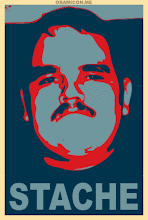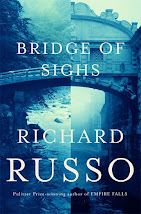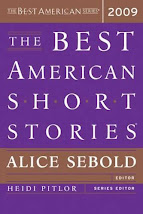Friends,
I'm not done with Max Perkins: Editor of Genius yet, I've got about 90 pages to go, but there is some remarkable stuff in this book. In case you don't know who Maxwell Perkins is, think of him as Gordon Lish, but with a wider impact. He's famous for editing the works of Thomas Wolfe, F. Scott Fitzgerald, Ernest Hemingway, Ring Lardner and a few other surprises, like he edited The Yearling. There is some remarkably interesting stuff in there.
Fitzgerald had nothing but bad titles for The Great Gatsby until Perkins suggested that one. And it was not that well received when it was realized, at least compared to its place in the canon now. (Equally interesting, Fitzgerald made his money for a long time from writing stories for magazines...what kind of lifestyle would that equate to today if you were to try living off spoils from magazines?)
Perkins refused a chance to work with William Faulkner because he was afraid it would make Hemingway too jealous. (He called Faulkner, if I'm getting it right, something like a meaningless genius.)
All of his writers were cut from very similar cloth in their pride, constant despair and fragility of ego and mind. They all had different ways of dealing with it, of course. Wolfe just went crazy with pride (and brain tumors...and really, Wolfe was like an unrestrained Hemingway in his bluster and petulance, only more self-important and less concerned about the larger world). Fitzgerald sank into depression, debt and drink. Hemingway would punch you in the face (there is this great anecdote about a small island in the gulf and its natives used to sing a song about Hemingway being an angry, fat man but only when he was far enough off shore not to hear them). They would go stretches of producing nothing, and Max would talk with them constantly, suggest stories, and give them money (particularly Fitzgerald) just because he loved their literature.
There's loads of personal information in there too about how he was so depressed he only had daughters. His wife wanted to be an actress, but he dissuaded her constantly, only showing any real interest when she wrote stories.
But really, the most impressive thing is his work on Thomas Wolfe's Of Time and the River. The "manuscript" Wolfe turned in to Perkins (his followup to Look Homeward, Angel) was several thousand handwritten pages of unconnected snippets of stuff (this is similar to how Look Homeward, Angel was done, too). The book wasn't so much as edited and quilted with the stuff that Tom had because it was Perkins, not Wolfe, who decided that the book was finished. Tom Wolfe wanted to keep writing, and keep going and going and going. How much going?
One million words, easy.
Here's a picture of one of the crates that contained part the Of Time and the River manuscript (I think that's Wolfe standing next to it...and as I understand the entire manuscript was delivered to Perkins in a five foot by two foot by one and a half foot box by Wolfe after the book came out):
And, while sorting through all that, Perkins would tell Wolfe to go write something the novel needed, scenes and sections from the main character's point of view. Wolfe would go out and return with 10,000 words of something completely different, so Perkins would redirect him, say no to the new words, and Wolfe would, again, come back with 10,000 words useless to the novel being constructed. This caused an additional half-million words to be written. So, you're looking at 1.5 million words in total for this manuscript.
Eventually Wolfe would comply to Perkins suggestion, but every cut Perkins wanted was met with argument from Wolfe. Including an 80,000 word (that's around 200 printed pages) superfluous dinner conversation between four characters.
So, the book was whittled down to it's most important 450,000 words, give or take, and the 900 page book was created. Which, if you're doing your math, is one third of the original manuscript.
Can you imagine that? On all sides, it's amazing. You got Wolfe writing that much, but not linearly (he'd write 10,000 words about this, then 10,000 words about that, then 80,000 words about how knows, then another 10,000 about this again, and so on) then having two-thirds of it sloughed off. And you got Perkins, with hammer and chisel, carving away. I can't imagine editors would still do this. And I can't imagine being able to make sense out of that manuscript jigsaw, let alone being able to make it a literary and critical success.
I'm just wowed by this. This is a book worth checking out. You won't learn too awful much about writing here, as I was led to be believe by Terry Davis (who recommended this book 3 years ago during workshop), but this book is a fascinating portrait of Perkins and his stable of quirky writers and their personality defects.
viva el mustache
November 13, 2008
Maxwell's Literary Hammer
![]() Responsible Party:
Bryan
at
9:24 AM
Responsible Party:
Bryan
at
9:24 AM
Subscribe to:
Post Comments (Atom)









1 comment:
You can make a decent living off writing for slick mags. back then you could do it with fiction; journalists today, with a steady stream of assignemnts, can make a good six figures. Depending on how involved a piece may be, with travel and research, most commercial mag features pay $5-15,000. I usually make $2-4K from mine. For a while I was getting two a month and lived well from that. Things are different now. As a freelancer, you just go with the flow...
Post a Comment